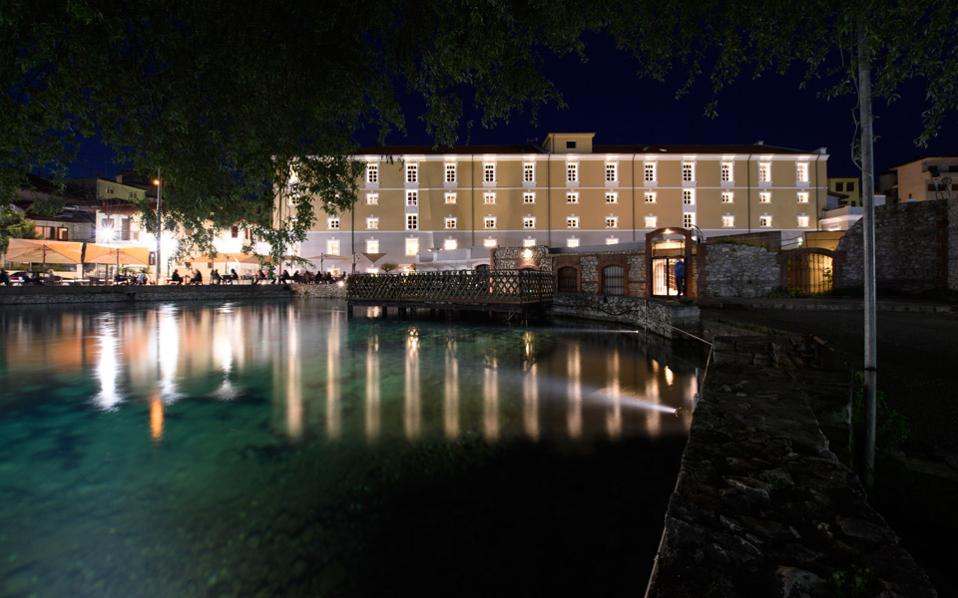Tobacco warehouse transformed into five-star hotel in northern town of Drama

“Have you ever fallen in love with a building? Well, that’s what happened to me.” My question was simple: Why would a man from Crete put himself through the 12-year ordeal of transforming an old industrial building in Drama, northern Greece, into a luxury hotel?
But love, or rather obstinacy, and perhaps even a hint of madness, was the fuel that kept businessman Manolis Ledakis from Hania going in his pursuit to transform the town’s emblematic 1920s-era tobacco warehouse – for years languishing behind a “For sale” sign until the love affair started in 2004 – into the five-star Hydrama Grand Hotel.
After scaling innumerable obstacles – the crisis, mountains of red tape, technical problems, lengthy procedures to acquire a license to transform the listed monument, paperwork to get funding from the National Strategic Reference Frameworks and, of course, the capital controls imposed last summer – the project was successfully completed and the Hydrama opened its doors to the public some two months ago.
The 7,500-square meter building is listed as a historical monument of industrial architecture from the early interwar years. It is an imposing specimen of utilitarian yet elegant design located in the most beautiful spot in the town of Drama, overlooking the Aghia Varvara springs and lake.
The building symbolizes the city’s golden years in the 1914-24 period, fueled by the tobacco industry. The imposing tobacco processing plant did not just reflect the wealth of its owner, Swiss Jew Hermann Spierer, a force in the global tobacco trade, but also the inspired architecture of its builder, Austrian architect Konrad von Vilas.
To realize his vision, Vilas had lumber imported from Austria, along with specialized technical crews.
The building was bought in 1932 by the Austro-Hellenic Tobacco Company and operated as a tobacco processing plant until 1974, when it became a warehouse.
Now, it is a luxurious city hotel designed by 3SK Stylianidis architects, who sought to highlight the building’s historical qualities by retaining many of the architectural elements from the 1920s.
The hotel consists of 73 rooms and luxury suites, a conference hall, an a la carte restaurant, a bar restaurant and a jazz bar. It also boasts an elegant wine store, where local labels are given a starring role.
Ledakis hopes that Hydrama – named after the ancient Greek settlement that once stood there and meaning “rich in water” – will help boost tourism in the entire area.
“Drama and the broader area have a lot to offer the visitor,” says Ledakis, whose telephone has been ringing nonstop with calls from other historic warehouse owners inspired by his endeavor.
“It has natural attractions, wineries that are open to the public, thriving cottage industries, archaeological wealth, an amazing history and the World War II-era Fort Lisse, which must be put to use. If we all work together, this town can become a destination,” he adds.





